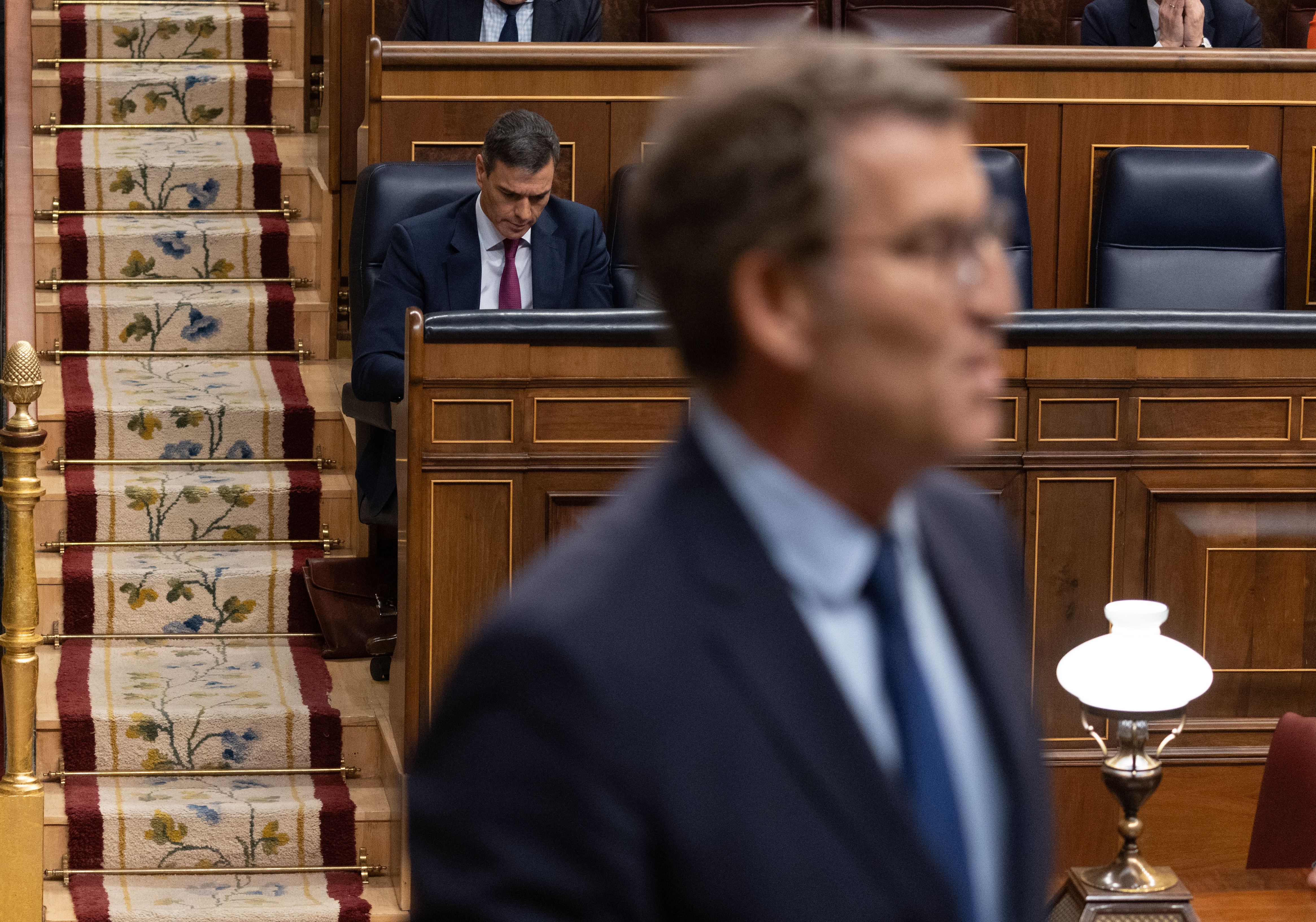This Wednesday, Spain's Congress of Deputies is to vote on three decree-laws containing economic anti-crisis measures. But Pedro Sánchez does not have the necessary support to pass them. Pro-independence Together for Catalonia (Junts) and alternative left Podemos, who both supported Sánchez's investiture as prime minister in November, are for the moment planning to vote no; to the point that the Socialists (PSOE) have opened a communications channel with the opposition People's Party (PP). But, at the moment, the PP is not showing any signs of offering mercy to its eternal rival either. Issues ranging from the Catalan amnesty to the price of meat and fish might have to be tackled in order to defuse the conflict that the PSOE has open with its supposed parliamentary partners as well as with the main party of the right. Another way forward could be to transform the decree law - which has to be voted as a straight yes-no vote, with no amendment possible - into a proposal for a parliamentary law, since the Socialists do not close the door on making additions to these texts after they come out of the cabinet room.
The first reason for the discord: an attack on the amnesty law. One of the three decree-laws in the package contains a pill that Junts does not want to swallow: it modifies the law on civil justice procedure in a way that allows the Spanish judiciary to put the amnesty for independence process prosecutions on standby until the European Court of Justice pronounces on the preliminary questions raised. This could undermine the law, as a pronouncement from Europe could easily take up to two years. Jordi Turull already warned ElNacional.cat in an interview on Sunday that for now Junts's no to these decree laws is "enormous".
But the reason that is leading Junts to oppose the decree goes beyond the damage that the amnesty law may suffer. In his interview with this newspaper, the Junts general secretary also warned that the decrees proposed by the Spanish government "do not respect the funding of the Catalan government, nor the question of who holds the competence" - that is, either the Spanish or the Catalan government. Sources from the PSOE say that, in private, the pro-independence parties admit that the point over the amnesty comes from a European directive and that they are aware that it is an irreversible measure. But this is the version given by the Socialists in private, not the one given by Junts.
In fact, the party who does not see a problem with this part of the decree is the Catalan Republican Left (ERC), which this Monday admitted that it "responds to a recommendation by the European Union". This is how the ERC spokesperson, Raquel Sans, confirmed the intended 'yes' by the party led by Gabriel Rufián in Madrid to the Spanish government decrees.
Also this Monday, in a gesture aimed at seducing Junts, Spain's first-ranked deputy PM, María Jesús Montero, said the PSOE was open to "exploring the perimeter" to see if it is possible to "incorporate elements" that convince the pro-independence group. Later, the PSOE organizing secretary, Santos Cerdán, specified that it will have to be Junts who makes these proposals. And, as much as Junts has urged the Socialists to withdraw the decree law, renegotiate it and re-present it once there is an agreement, Cerdán reiterated that the decree will remain for this Wednesday. PSOE sources assert that none of these decree laws can be edited down. However, other things could be added.
Josep Rius (Junts): "There will only be stability [for the PSOE] if there is progress on both axes, in the national sphere and in the social sphere."
Podemos pressures the PSOE: supermarket share prices and profits
Podemos, which at the end of 2023 decided to break with the larger left-wing platform Sumar and leave for Congress's Mixed Group, is stretching its now-untethered parliamentary legs to put pressure on the PSOE. The party led by Ione Belarra warned the Socialists this Monday that it remains firm in the idea of not supporting the reform of the unemployment allowance or the anti-crisis decree.
Its conditions are: that the the pension contribution reduction for over 52-year-olds must be withdrawn, and measures such as limiting the profit margin of large supermarkets to 2% or lowering food prices should be included. These Podemos demands also bring it into open conflict with Yolanda Díaz, as one of the two measures depends on the employment ministry, in the hands of the Sumar leader.
Meat and fish, the PP's conditions
It wouldn't be beyond the realms of possibility for the Spanish government to end up passing one of these decree laws with an unexpected partner: the PP. For now, the opposition rightists are firm on their 'no' vote to all three decrees. But they have set conditions for reconsidering their position in one of the three, and these are not out of the question for the PSOE. What's more, sources from the Socialist leadership admit that the PP "is making proposals that are indeed within the framework of the issues involved in the decree laws".
Reducing personal income tax for people with an income of less than 40,000 euros, lowering VAT on meat, fish and canned goods, and reconsidering the VAT increase on electricity and gas are the conditions that the PP have put on the table so that the anti-crisis decree, approved in the last cabinet meeting, could goes ahead. In fact, PP and PSOE sources confirm that in the last few hours the PP's Cuca Gamarra and "superminister" Félix Bolaños have spoken by phone. This Monday, however, Feijóo have two clues that can be read in opposite directions: that the PP has not come to solve Sánchez's "internal problems" but that, at the same time, his party will always be a "safety net" for Spaniards.

